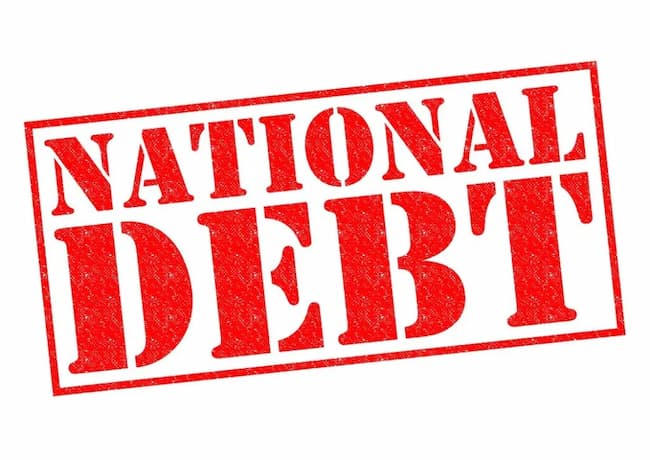The recent loan request signed by President Muhammadu Buhari puts the country’s debt profile at N35.465 trillion as of June 2021 end, according to the Debt Management Office.
Disclosing this in a circular on Wednesday, the DMO said that Federal and state governments and the Federal Capital Territory (FCT) jointly made up the total debt.
Recently, Buhari sought the assent of members of the National Assembly on the Federal Government’s loan request of N4 billion and 710 million euros.
The DMO noted that the current figure is a N2.358 trillion boost from that recorded at the end of the first quarter of 2021.
Breaking down the figures, the agency said that the debt was made up of external debts to the tune of N13.711 trillion, representing 38.66 percent of the total.
On the other hand, domestic debts made up 61.34 percent of the total owed sum, or N21.754 trillion.
On who owed what, the DMO said that the Federal Government racked up a total of N11.828 trillion external debt and N17.632 trillion domestic debt.
The combined debts of states and the Federal Capital Territory (FCT) are to the tune of N1.883 trillion (external debt) and N4.122 trillion (domestic debt).
READ ALSO: Nigeria’s Inflation Rate Slows to 17.01 Percent in August – NBS
Nigeria, according to the report, owed the bulk of its external debts to the World Bank and the African Development Bank (AfDB), accounting for 54.88 percent of the total debts.
Eurobonds and Diaspora bonds followed, under commercial debt, at 31.88 percent. Trailing commercial debt was bilateral – deals with countries including Germany, China, Japan, France, and India – accounted for 12.70 percent and Promissory Notes made up 0.54 percent of the sum.
Speaking at a presentation, the Director-General, DMO, Patience Oniha, said, “The sovereign Eurobonds serve as a benchmark on the back of which several local banks have issued Eurobonds. Amongst them are Zenith Bank, Access Bank, UBA, FBN, Ecobank Nigeria and Fidelity Bank. This window opened by the sovereign enabled these Nigerian Banks to raise Tier 2 Capital to meet regulatory requirements and enhanced their capacity to lend to, and, support local borrowers.
“Issuing Eurobonds has been a potent tool for building up to Nigeria’s External Reserves. A healthy level of External Reserves supports the Naira Exchange Rate and Nigeria’s sovereign rating.
“Raising funds externally through Eurobonds to finance Budget Deficits reduces the level of sovereign borrowing in the domestic markets. The benefits of this are many: mitigates the risk of crowding out the private sector (more funds available at moderate rates for other borrowers in the domestic economy)
“The Eurobonds are also listed in Nigeria’s two (2) securities exchanges: The Nigerian Exchange Limited and FMDQ Securities Exchange Limited. This increases the size of these exchanges and the diversity of instruments listed.
“The Eurobonds are actually issued as part of approved Government Borrowing Plan usually in the FGN’s Annual Budgets, for financing capital projects thereby reducing the infrastructure gap.”













